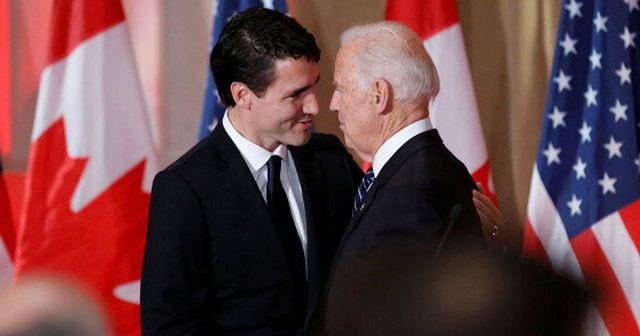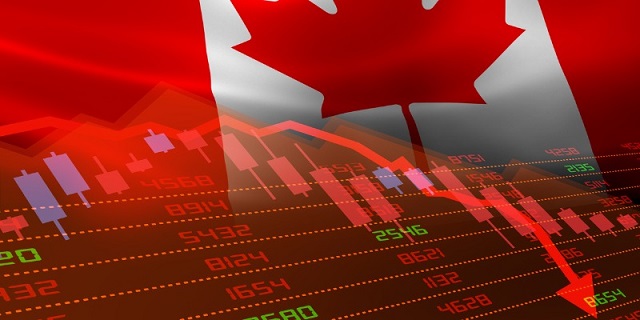Alberta
Russia has halted a wartime deal allowing Ukraine to ship grain. It’s a blow to global food security

LONDON (AP) — Russia halted a breakthrough wartime deal on Monday that allows grain to flow from Ukraine to countries in Africa, the Middle East and Asia where hunger is a growing threat and high food prices have pushed more people into poverty.
Kremlin spokesman Dmitry Peskov said Russia would suspend the Black Sea Grain Initiative until its demands to get its own food and fertilizer to the world are met. While Russia has complained that restrictions on shipping and insurance have hampered its agricultural exports, it has shipped record amounts of wheat.
“When the part of the Black Sea deal related to Russia is implemented, Russia will immediately return to the implementation of the deal,” Peskov said.
The suspension marks the end of an accord that the U.N. and Turkey brokered last summer to allow food to leave the Black Sea region after Russia’s invasion of its neighbor worsened a global food crisis. The initiative is credited with helping lower soaring prices of wheat, vegetable oil and other food commodities.
Ukraine and Russia are both major global suppliers of wheat, barley, sunflower oil and other affordable food products that developing nations rely on.
The grain deal provided assurances that ships won’t be attacked entering and leaving Ukrainian ports, while a separate agreement facilitated the movement of Russian food and fertilizer. While Western sanctions do not apply to Moscow’s agricultural shipments, some companies may be wary of doing business with Russia because of the measures.
Ukrainian President Volodymyr Zelenskyy’s adviser, Mykhailo Podolyak, said the suspension was expected and believes it’s political theater.
“The statement itself immediately includes an escape clause,” he said. “Therefore, we are dealing with classic public techniques of the Russian Federation that no longer require significant reciprocal reactions.”
Turkish President Recep Tayyip Erdogan said the country’s foreign minister would speak with his Russian counterpart Monday — and that he was hopeful the deal would be extended.
The suspension of the deal sent wheat prices up about 3% in Chicago trading, to $6.81 a bushel. Analysts don’t expect more than a temporary bump to food commodity prices because places like Russia and Brazil have ratcheted up wheat and corn exports, but food insecurity worldwide is growing.
The Black Sea Grain Initiative has allowed three Ukrainian ports to export 32.9 million metric tons of grain and other food to the world, more than half of that to developing nations, according to the Joint Coordination Center in Istanbul.
The agreement was renewed for 60 days in May, but in recent months, the amount of food shipped and number of vessels departing Ukraine have plunged, with Russia accused of preventing additional ships from participating.
The war in Ukraine sent food commodity prices to record highs last year and contributed to a global food crisis also tied to other conflicts, the lingering effects of the COVID-19 pandemic, droughts and other climate factors.
High costs for grain needed for food staples in places like Egypt, Lebanon and Nigeria exacerbated economic challenges and helped push millions more people into poverty or food insecurity.
Rising food prices affect people in developing countries disproportionately, because they spend more of their money on meals. Poorer nations that depend on imported food priced in dollars also are spending more as their currencies weaken and they are forced to import more because of climate change. Places like Somalia, Kenya, Morocco and Tunisia are struggling with drought.
Under the deal, prices for global food commodities like wheat and vegetable oil have fallen, but food was already expensive before the war in Ukraine and the relief hasn’t trickled down to kitchen tables.
“The Black Sea deal is absolutely critical for the food security of a number of countries,” and its loss will compound the problems for those facing high debt levels and climate fallout, said Simon Evenett, professor of international trade and economic development at the University of St. Gallen in Switzerland.
The U.N. Food and Agriculture Organization said this month that 45 countries need outside food assistance, with high local food prices “a driver of worrying levels of hunger” in those places.
The grain deal has faced setbacks since it was brokered by the U.N. and Turkey: Russia pulled out briefly in November before rejoining and extending the deal.
In March and May, Russia would only extend the deal for 60 days, instead of the usual 120. The amount of grain shipped per month fell from a peak of 4.2 million metric tons in October to 1.3 million metric tons in May, the lowest volume since the deal began.
Exports expanded in June to a bit over 2 million metric tons, thanks to larger ships able to carry more cargo.
Ukraine has accused Russia of preventing new ships from joining the work since the end of June. Joint inspections meant to ensure vessels only carry grain and not weapons that could help either side also have slowed considerably.
Asked Monday whether an attack on a bridge connecting the Crimean Peninsula to Russia was a factor in the decision on the grain deal, the Kremlin spokesman said it was not.
Meanwhile, Russia’s wheat shipments hit all-time highs following a large harvest. It exported 45.5 million metric tons in the 2022-2023 trade year, with another record of 47.5 million metric tons expected in 2023-2024, according to U.S. Department of Agriculture estimates.
___
AP reporters Hanna Arhirova in Kyiv, Ukraine, and Andrew Wilks in Istanbul contributed.
___
See AP’s complete coverage of the war in Ukraine at https://apnews.com/hub/russia-ukraine and the food crisis at https://apnews.com/hub/food-crisis.
Courtney Bonnell, The Associated Press
Alberta
Alberta government should eliminate corporate welfare to generate benefits for Albertans

From the Fraser Institute
By Spencer Gudewill and Tegan Hill
Last November, Premier Danielle Smith announced that her government will give up to $1.8 billion in subsidies to Dow Chemicals, which plans to expand a petrochemical project northeast of Edmonton. In other words, $1.8 billion in corporate welfare.
And this is just one example of corporate welfare paid for by Albertans.
According to a recent study published by the Fraser Institute, from 2007 to 2021, the latest year of available data, the Alberta government spent $31.0 billion (inflation-adjusted) on subsidies (a.k.a. corporate welfare) to select firms and businesses, purportedly to help Albertans. And this number excludes other forms of government handouts such as loan guarantees, direct investment and regulatory or tax privileges for particular firms and industries. So the total cost of corporate welfare in Alberta is likely much higher.
Why should Albertans care?
First off, there’s little evidence that corporate welfare generates widespread economic growth or jobs. In fact, evidence suggests the contrary—that subsidies result in a net loss to the economy by shifting resources to less productive sectors or locations (what economists call the “substitution effect”) and/or by keeping businesses alive that are otherwise economically unviable (i.e. “zombie companies”). This misallocation of resources leads to a less efficient, less productive and less prosperous Alberta.
And there are other costs to corporate welfare.
For example, between 2007 and 2019 (the latest year of pre-COVID data), every year on average the Alberta government spent 35 cents (out of every dollar of business income tax revenue it collected) on corporate welfare. Given that workers bear the burden of more than half of any business income tax indirectly through lower wages, if the government reduced business income taxes rather than spend money on corporate welfare, workers could benefit.
Moreover, Premier Smith failed in last month’s provincial budget to provide promised personal income tax relief and create a lower tax bracket for incomes below $60,000 to provide $760 in annual savings for Albertans (on average). But in 2019, after adjusting for inflation, the Alberta government spent $2.4 billion on corporate welfare—equivalent to $1,034 per tax filer. Clearly, instead of subsidizing select businesses, the Smith government could have kept its promise to lower personal income taxes.
Finally, there’s the Heritage Fund, which the Alberta government created almost 50 years ago to save a share of the province’s resource wealth for the future.
In her 2024 budget, Premier Smith earmarked $2.0 billion for the Heritage Fund this fiscal year—almost the exact amount spent on corporate welfare each year (on average) between 2007 and 2019. Put another way, the Alberta government could save twice as much in the Heritage Fund in 2024/25 if it ended corporate welfare, which would help Premier Smith keep her promise to build up the Heritage Fund to between $250 billion and $400 billion by 2050.
By eliminating corporate welfare, the Smith government can create fiscal room to reduce personal and business income taxes, or save more in the Heritage Fund. Any of these options will benefit Albertans far more than wasteful billion-dollar subsidies to favoured firms.
Authors:
Alberta
Official statement from Premier Danielle Smith and Energy Minister Brian Jean on the start-up of the Trans Mountain Pipeline

-

 Addictions2 days ago
Addictions2 days agoCity of Toronto asks Trudeau gov’t to decriminalize hard drugs despite policy’s failure in BC
-

 Business2 days ago
Business2 days agoWhen politicians gamble, taxpayers lose
-

 Automotive2 days ago
Automotive2 days agoVehicle monitoring software could soon use ‘kill switch’ under the guise of ‘safety’
-

 Bruce Dowbiggin2 days ago
Bruce Dowbiggin2 days agoIt Gets Late Early These Days: Time To Bounce Biden & Trudeau?
-

 National1 day ago
National1 day agoBritish Columbia quickly shoots down bill to ban men from competing in women’s sports
-

 Economy1 day ago
Economy1 day agoOttawa’s homebuilding plans might discourage much-needed business investment
-

 Alberta1 day ago
Alberta1 day agoAlberta government should eliminate corporate welfare to generate benefits for Albertans
-

 Energy19 hours ago
Energy19 hours agoNet Zero’s days are numbered? Why Europeans are souring on the climate agenda









